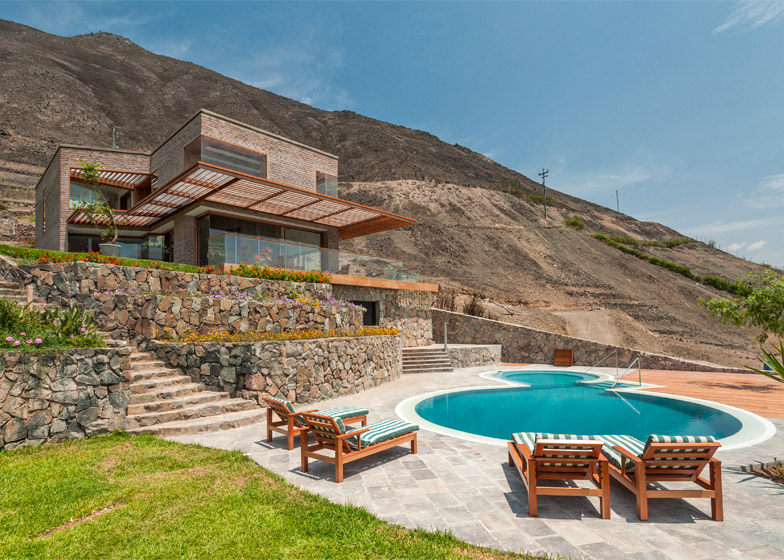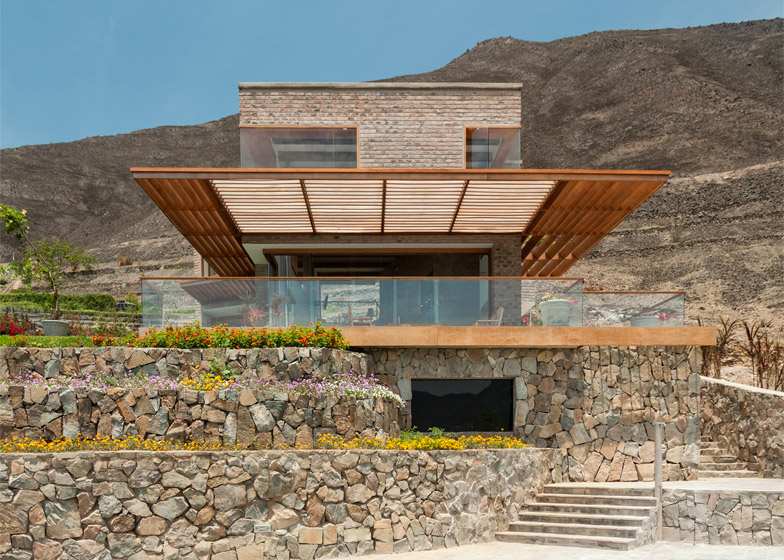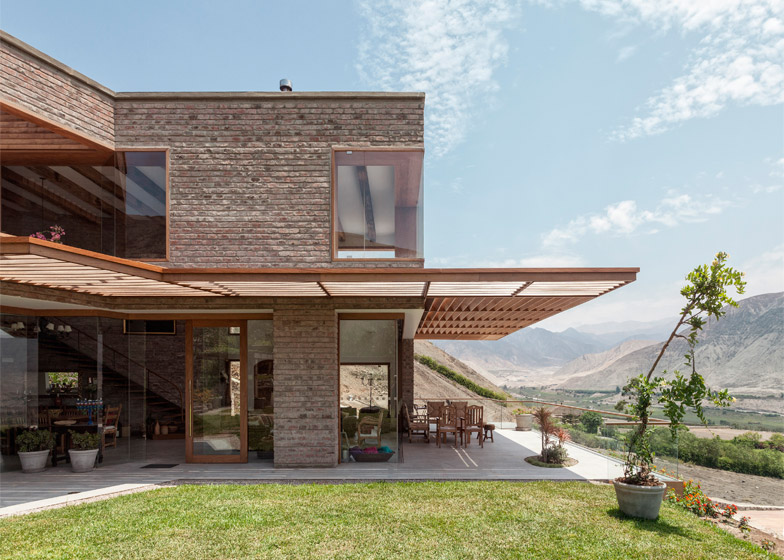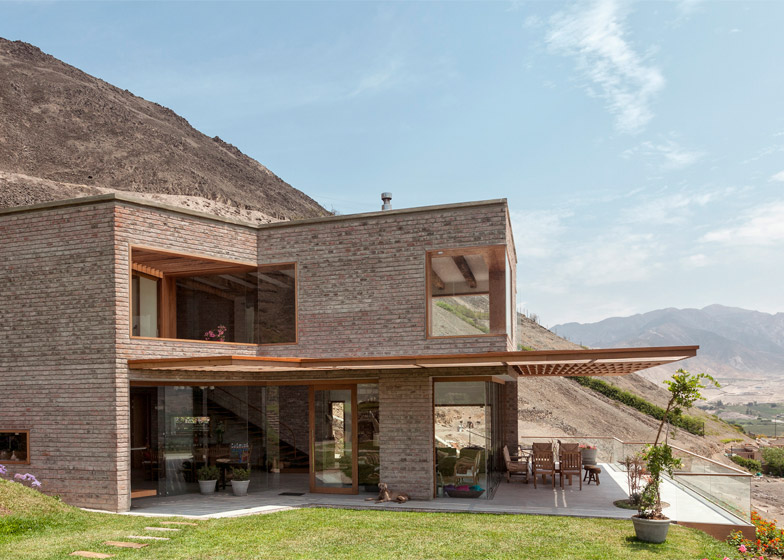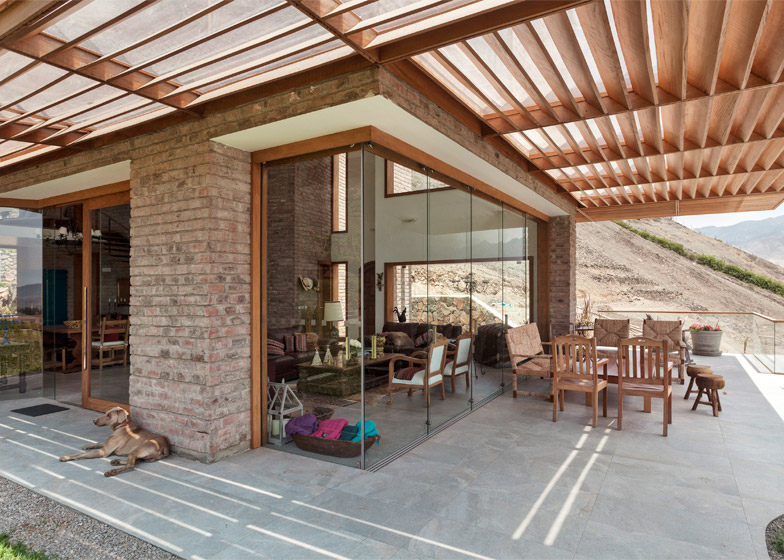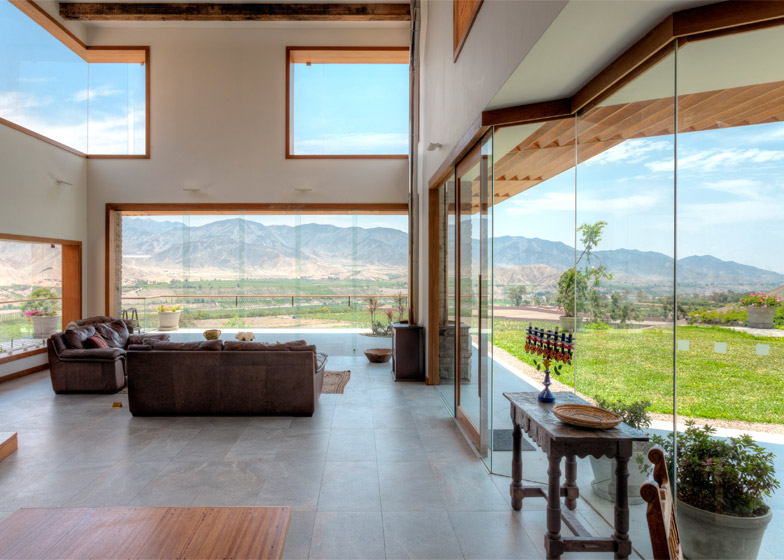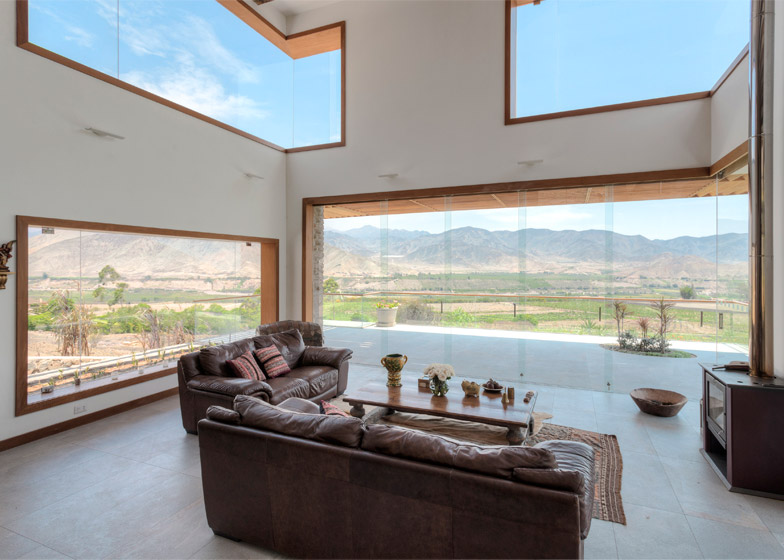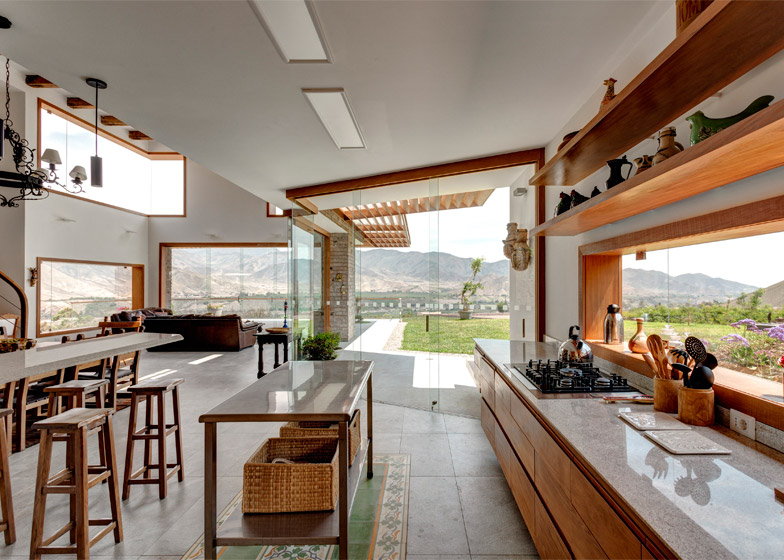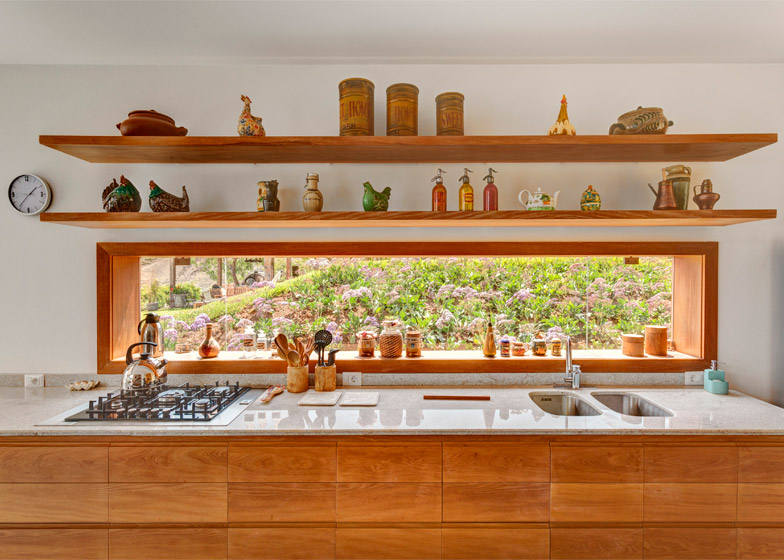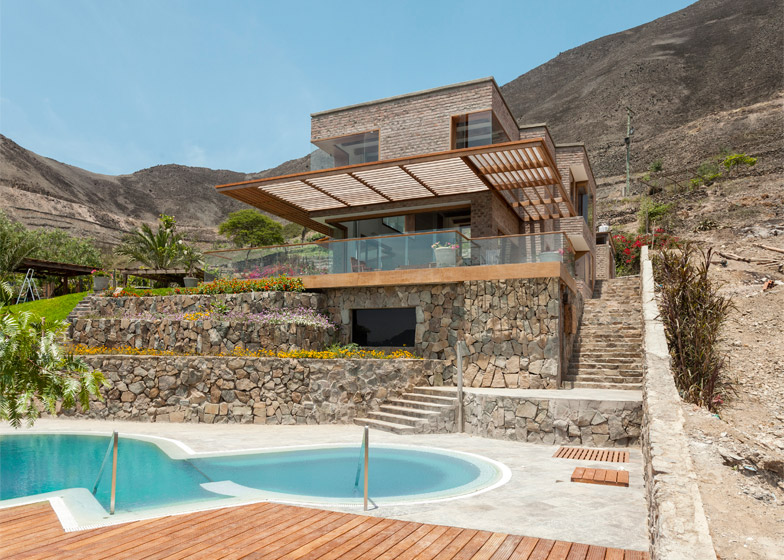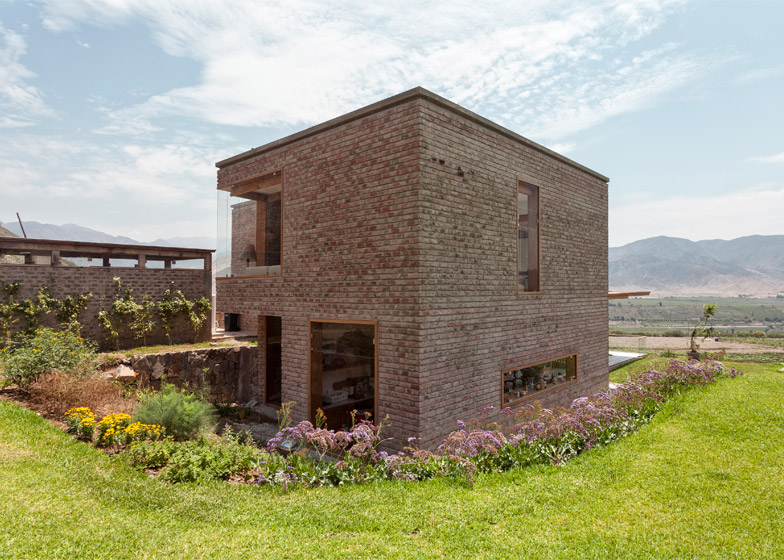Stones from surrounding mountains and bricks from a local kiln were used to build this house bordering a desert in Peru, so it appears "like a new layer on the landscape" (+ slideshow).
House in Azpitia was designed by Lima-based architect Rafael Freyre for a couple in their 50s, who wanted a summer home where they could entertain friends and family and feel closer to nature. It is in a valley near the village of Azpitia, 90 kilometres south of Lima, between a mountainous desert and a green, low-lying area of vineyards.
"You could say the owners were looking for a post-urban experience," Freyre told Dezeen. "The area is known for its vineyards and pre-Columbian ruins, and has become a kind of natural oasis for people escaping the big metropolis of Lima."
Freyre chose local and natural materials to make the house feel more connected to its setting, including bricks from a nearby kiln for the cladding, and stone from the surrounding mountains for the garden's retaining walls.
"The house is designed like a new layer on the landscape," said Freyre. "The irregular texture and colours of the bricks relate to the dry surroundings, and the stones create an implicit connection between the house and the mountains."
A brise soleil cantilevers five metres from the back wall to create an expansive shaded terrace, which Freyre conceived as a transitional space between the home's interior and exterior.
"I see roofs and walls as tactile elements, like clothes for the body," he said. "The intention with the shaded terrace was to create an experience where you slowly lose these clothes, and immerse yourself in nature."
Rustic materials and sun-shades are common in desert architecture. Other houses featured on Dezeen that use these include a Utah home covered in pre-rusted steel to match the colours of its landscape, and an Australian home with a large overhanging roof to provide shade in summer and trap heat in winter.
House in Azpitia has an internal floor area of 240 square metres, and is arranged across three levels. The basement houses a sauna, the ground floor has a kitchen, dining area and a double-height living room, plus a bedroom and en-suite bathroom, and the first floor has two more bedrooms with ensuites, plus a secondary living space by the stair landing for watching TV.
The main living space is 6.8 metres tall and features large windows at the top that wrap around the corners. These are aligned with the path of the sun to bring in morning light from the east and afternoon light from the west.
"The interior is designed as a space where the owners can experience the landscape – to bring near what is far," said Freyre. "The idea was to create a house with a porous skin, featuring openings that bring in the warmth, light, and breezes."
Reclaimed timber was used for the kitchen cabinets and shelves, and pumaquiro – a hardwood that grows in the region – was used for the window frames and brise soleil, chosen for its durability.
Porcelain was chosen for the flooring and extends out to the terrace to provide a smooth transition between the rocky garden landscaping and the home's interior.
The home's structure was built with concrete and bricks, and took one and a half years to complete.
Photography is by Edi Hirose.
Project credits:
Architect: Rafael Freyre
General assistant: Juan Jose Barboza
Landscaping: Manuel Mendieta
Design team: Luis Bacon, Luis Alberto Mucha, Leonardo Valderrama, Sandro Ocaña, Luis Ocaña

